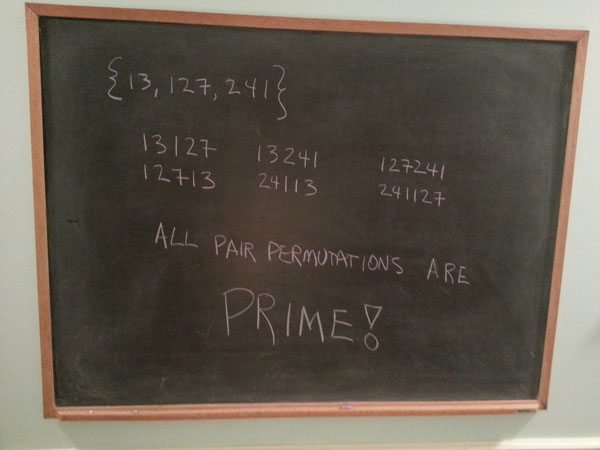The numbers 13, 127, and 241 are an interesting “prime pair permutation” trio. Each number is prime, and concatenating any permutation of a pair of these numbers also makes a prime. For example, [13][127] = 13,127 and [241][13] = 24,113 are both prime.
This week’s GeekDad Puzzle of the Week is straightforward, but may take a little brain power. How many sets of numbers under 1,000 are there that are “prime pair permutation” quartets? That is, how many sets of four primes are there with 3 or fewer digits that can be selected pairwise in any combination to be stuck together in either order that always make a new prime?
Congratulations to Randy Slavey for correctly solving the puzzle and being chosen at random from among the correct solutions! The $50 ThinkGeek Gift Certificate will be coming his way soon!
The correct solution is that there are exactly two quartets of primes that, when selected pairwise and concatenated, always produce additional prime numbers.
The quartets are:
{3,7,109,673} : 37, 73, 3109, 1093, 3673, 6733, 7109, 1097, 7673, 6737, 109673, and 673109 are all primes.
{23,311,677,827} : 23311,31123, 23677, 67723, 23827, 82723, 311677, 677311, 311827, 827311, 677827, and 827677 are all primes.
Thanks for reading GeekDad, and happy puzzling!



